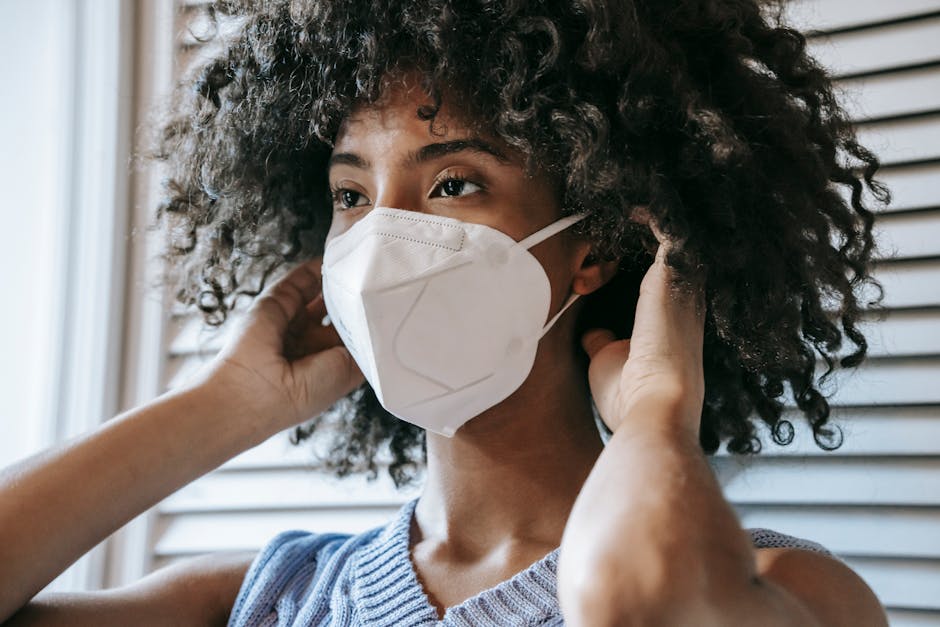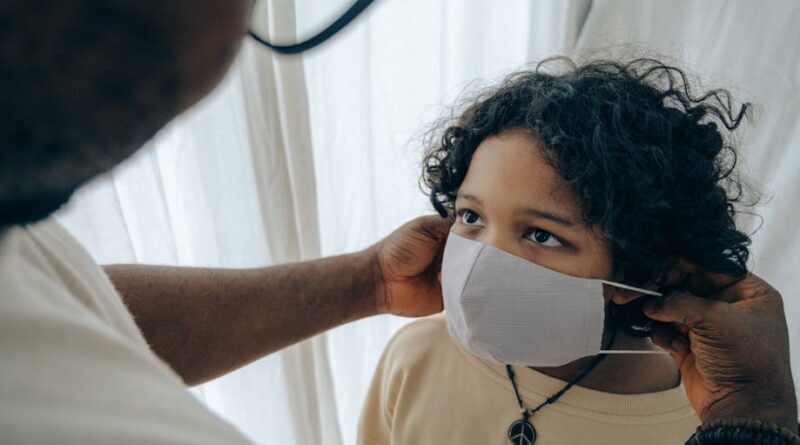How to Prevent Common Infections
In a world where germs and pathogens are constantly lurking, understanding how to prevent common infections is essential for maintaining good health. From the common cold to more serious illnesses, infections can have a significant impact on our daily lives. But with the right knowledge and practices, it is possible to reduce the risk of getting sick and protect yourself and those around you. In this comprehensive guide, we will explore the various strategies and techniques you can use to prevent common infections effectively.
The Importance of Preventing Infections

Before delving into the specifics of preventing infections, it is crucial to understand why this topic is so important. Infections can range from mild inconveniences to life-threatening conditions, and they can affect individuals of all ages and backgrounds. Not only do infections cause discomfort and illness, but they can also lead to missed work or school days, financial strain from medical bills, and even long-term health complications. By taking proactive steps to prevent infections, you can safeguard your well-being and that of your loved ones.
Proper Hand Hygiene

One of the most effective ways to prevent the spread of infections is by practicing proper hand hygiene. Our hands come into contact with countless surfaces and objects throughout the day, picking up germs along the way. Washing your hands regularly with soap and water for at least 20 seconds can help remove these germs and reduce the risk of infection. Additionally, using hand sanitizer with at least 60% alcohol is a convenient alternative when soap and water are not available.
It is important to wash your hands before and after certain activities, such as preparing food, eating, caring for someone who is sick, and treating a wound. By incorporating hand hygiene into your daily routine, you can significantly lower the chances of contracting or spreading infections.
Immunizations and Vaccinations

Immunizations and vaccinations play a critical role in preventing infections by helping your body develop immunity to specific diseases. Vaccines work by introducing a weakened or inactive form of a pathogen into the body, prompting the immune system to produce antibodies that provide protection against future infections. By staying up to date on recommended vaccines, you can bolster your immune response and lower the risk of contracting preventable illnesses.
Common vaccines that are recommended for people of all ages include those for influenza, measles, mumps, rubella, and tetanus. It is essential to consult with your healthcare provider to determine which vaccines are appropriate for you based on your age, health status, and lifestyle.
Good Respiratory Hygiene

Respiratory infections, such as the flu and the common cold, are often spread through respiratory droplets produced when an infected person coughs or sneezes. Practicing good respiratory hygiene can help prevent the transmission of these infections to others. Covering your mouth and nose with a tissue or your elbow when coughing or sneezing can limit the spread of germs in the air.
Additionally, avoiding close contact with individuals who are sick and staying home when you are feeling unwell can prevent the spread of respiratory infections. By taking these simple precautions, you can protect yourself and those around you from getting sick.
Clean and Disinfect Surfaces
Surfaces in our homes and workplaces can harbor a variety of germs and pathogens that can cause infections. Regularly cleaning and disinfecting commonly touched surfaces, such as doorknobs, light switches, and countertops, can help reduce the risk of illness. Using EPA-approved disinfectants and following the manufacturer’s instructions for proper use can effectively kill germs and prevent their spread.
It is especially important to focus on high-touch areas where germs are more likely to accumulate. By incorporating surface cleaning into your cleaning routine, you can create a healthier environment for yourself and your family.
Healthy Lifestyle Choices
Leading a healthy lifestyle can fortify your immune system and reduce the likelihood of infections. Eating a balanced diet rich in fruits, vegetables, whole grains, and lean proteins provides essential nutrients that support immune function. Regular physical activity can also boost immunity and help your body fight off infections.
Getting an adequate amount of sleep, managing stress effectively, and avoiding tobacco and excessive alcohol consumption are additional lifestyle factors that can impact your susceptibility to infections. By prioritizing your health and well-being, you can strengthen your body’s defenses against common illnesses.
Travel Precautions
Traveling can expose you to new environments and germs, increasing the risk of infections. Taking precautions before and during your travels can help protect you from getting sick. Researching your destination’s health risks, including required vaccinations and potential disease outbreaks, can help you prepare accordingly.
Practicing good hygiene while traveling, such as washing your hands frequently and avoiding contact with sick individuals, can prevent the spread of infections. Packing essential items like hand sanitizer, disinfectant wipes, and any necessary medications can also help you stay healthy while on the go.
Common Misconceptions
There are several common misconceptions surrounding the prevention of infections that can lead to misunderstandings and misinformation. One prevalent myth is that exposure to cold weather or wet hair can cause colds or the flu. In reality, these illnesses are caused by viruses, not temperature or humidity.
Another misconception is that antibiotics are effective against viral infections, such as the common cold. Antibiotics only work against bacterial infections and are not effective against viruses. Misusing antibiotics can contribute to antibiotic resistance, making it harder to treat bacterial infections in the future.
Comparative Analysis
When comparing different strategies for preventing infections, it is essential to consider their effectiveness, feasibility, and potential side effects. While hand hygiene, vaccinations, and respiratory etiquette are universally recommended practices, some interventions may be more appropriate in specific situations.
For example, wearing a mask can be an effective measure to prevent the spread of respiratory infections in crowded or high-risk environments. However, masks may not be necessary for everyday activities and can be uncomfortable to wear for extended periods.
FAQs
1. Can natural remedies prevent infections?
While some natural remedies, such as echinacea and elderberry, are believed to boost the immune system, their efficacy in preventing infections is not well-established. It is essential to consult with a healthcare provider before using natural remedies for infection prevention.
2. How often should I wash my hands to prevent infections?
It is recommended to wash your hands frequently, especially before and after eating, using the restroom, and caring for someone who is sick. Using soap and water and scrubbing for at least 20 seconds is the most effective way to remove germs.
To Wrap Things Up
Preventing common infections is a multifaceted endeavor that requires a combination of strategies, from practicing good hand hygiene to maintaining a healthy lifestyle. By incorporating these preventive measures into your daily routine, you can reduce your risk of getting sick and promote overall well-being. Remember, taking proactive steps to prevent infections not only benefits you but also contributes to a healthier community and world.




